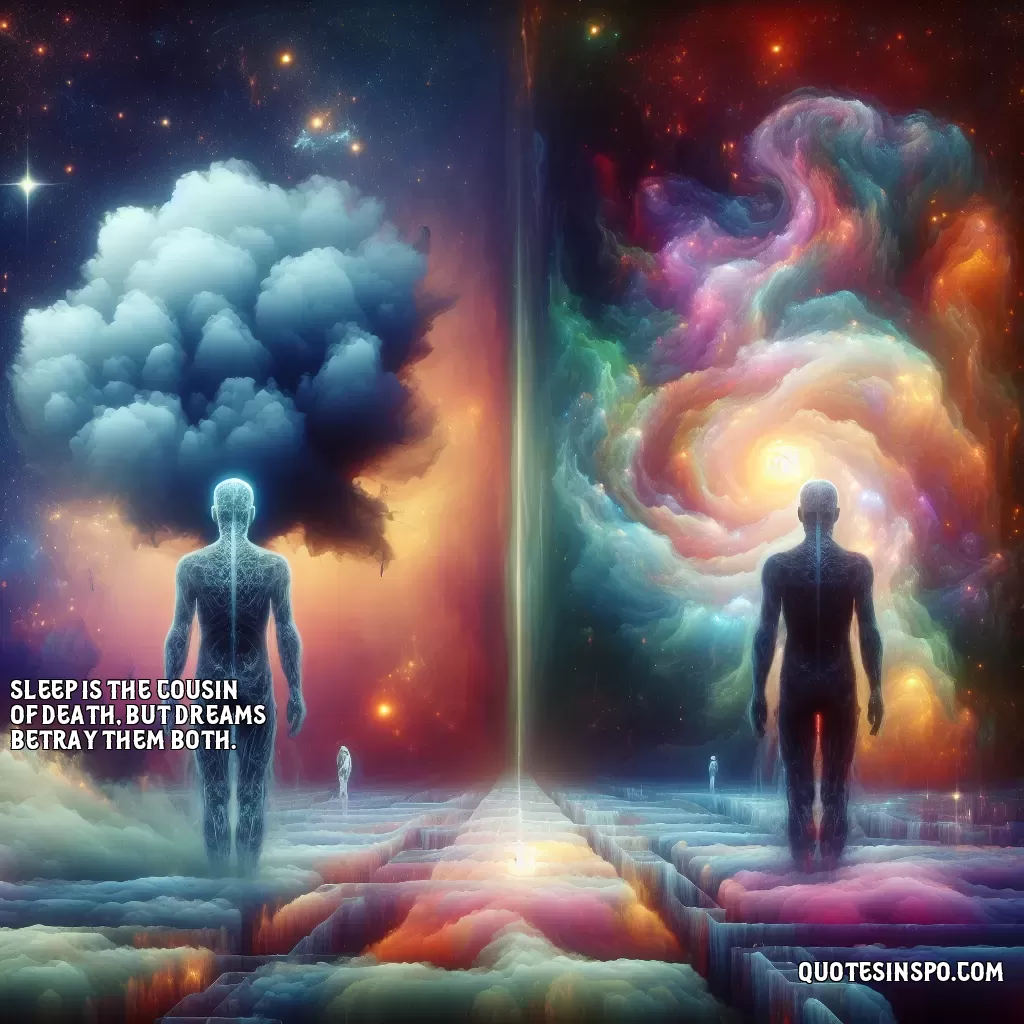
Sleep is the cousin of death, but dreams betray them both.
The quote "Sleep is the cousin of death, but dreams betray them both" can be seen as a contemplative reflection on the relationship between sleep, dreams, and death. At its core, it draws on the age-old comparison between sleep and death—both states involve a form of unconsciousness and a departure from reality. This connection is perhaps most famously articulated in various cultural and literary contexts, suggesting that when we sleep, we are temporarily removed from the conscious world, akin to a mini-death, with both involving a release or surrender of our waking consciousness. The "cousin" metaphor indicates a familial and inherent closeness between sleep and death, implying a shared nature of stillness or cessation. However, the intriguing twist of the quote lies in how "dreams betray them both." Dreams serve as a domain where imagination thrives, unfettered by the constraints of reality or the finality of death. Despite the inertness of sleep and death, dreams erupt with activity, creativity, and possibility. They are unpredictable and vibrant, countering the notion of stillness and passivity associated with both sleep and death. In dreams, there is a sense of life and vitality that defies the still nature of sleep and death. Dreams are dynamic and can evoke emotion, disperse insights, revisit memories, or explore fears, all of which signify movement, growth, and change—characteristics that stand in contrast to the cessation implied by sleep and death. Thus, dreams do not belong solely to the realm of stillness but instead act as a bridge to the active mind, reflecting how life can persist even in the most inert of states. In doing so, they "betray" the inertness of both sleep and death by introducing the vibrancy of life and the unpredictable nature of human experience.
Quote By: Walt Whitman
Walt Whitman (1819-1892) was an influential American poet, essayist, and journalist, best known for his groundbreaking collection of poetry, "Leaves of Grass," which celebrated the individual, democracy, and the beauty of the human experience. His innovative style and free verse form significantly impacted American literature and paved the way for modern poetry. Whitman's work often reflected his deep appreciation for nature, humanity, and the complexities of life in the United States during a time of significant social change.
Bio added on: 2025-03-14 07:10:41